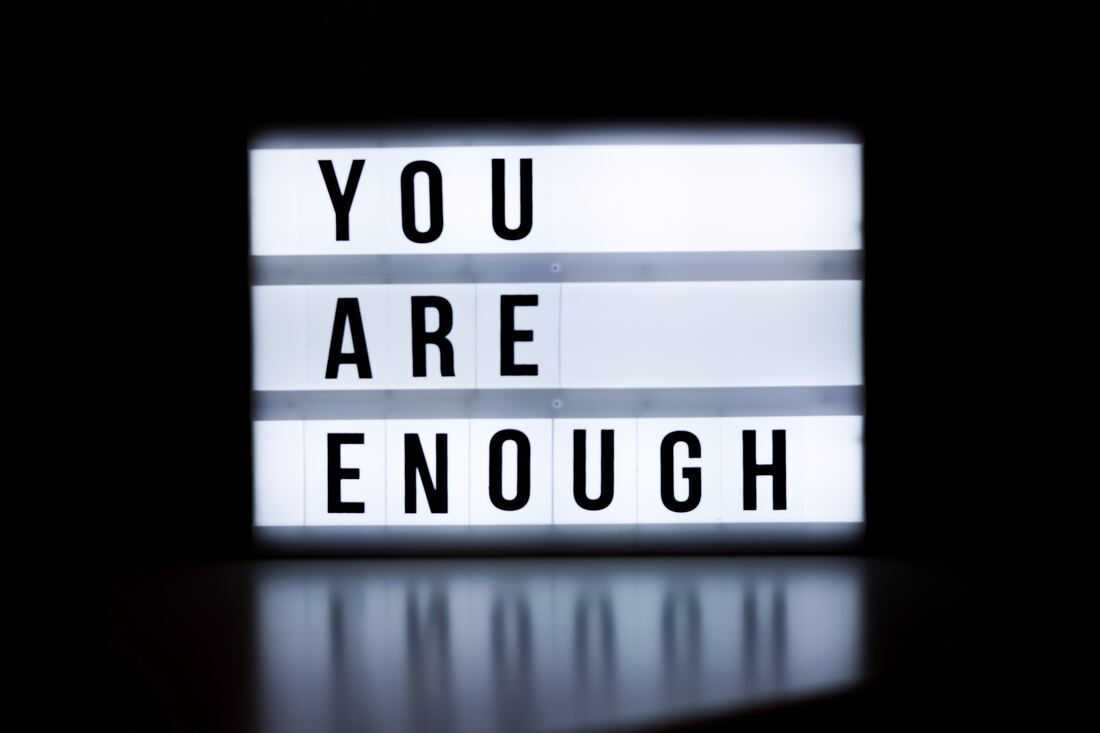|
“What if you are enough as you are right now?”
Several months ago, my therapist asked me this question during one of our sessions. (I burst into tears.) Since that moment, I have been returning to and reflecting on this idea of being enough as I already am. How is it possible to be enough, yet still not have all the answers? A little background: I am highly sensitive. I remember always being this way. This trait comes in handy because I am able to read a room and feel another person’s feelings. When I see another person hurting I hurt. I also feel another person's excitement and fully feel their joy. My husband tells me that my energy is contagious, and when I am full of positive energy, I can bring the party! Being highly sensitive has its pitfalls too. Sometimes I miss a joke, read too much into a comment, get my feelings hurt, or in a moment of anger, lose the ability to problem-solve. Sometimes I focus so much on how I’m hurt that I miss the opportunity to see the possibilities, take risks, and identify solutions. I go to therapy to help me stay on the solution-oriented, growth mindset track. Going to therapy doesn't mean I’m not enough. In fact, when I realize I am enough, my mind opens to all possibilities, including utilizing therapy! I realize I CAN solve the problem in front of me. I DO have the tools to work through issues in my job, with my spouse, with my sons, friends, etc. If I don’t know something, I have the ability to ASK FOR HELP. All the resources are within me and around me. I just have to access the right one. Going to therapy helps me stay in this mindset, and return to it when needed. I wasn’t always able to do this, especially as a teenager and young adult. Does this resonate with you about your son or daughter? Here are some questions to pose to your son or daughter:
I have been there. I understand. For a long time, I thought there was something wrong with me. I believed I was not intelligent, or good enough. So where did I turn? 1. Connection and Validation For me, connection is key. Connecting with others who understand, and admitting my fears and worries to a person I trust is crucial when moving towards solutions. A trusted person who validates my feelings also helps me process them in a healthy way. This process helps change my negative self-talk to solution- oriented talk. Sometimes this person is my therapist. Other times, it’s my best friend. 2. Develop a Solution Toolkit A toolkit is made up of resources we access when we need support with a specific issue. Sometimes it may be one of the following:
3. Educational Therapy and Growth Mindset If you believe your son or daughter might benefit from extra support in building a solutions-oriented mindset, please reach out. We focus on:
Remember, you are enough. Asking for help is just part of your toolkit! The bulk of Brittany's career has been spent working with students with learning disabilities, including Dyslexia, Dysgraphia, Dyscalculia, Executive Functioning Issues and Processing Disorders, as well as children with ADHD- Inattentive, Hyperactive, and Combined. Brittany's passion is collaborating with and empowering diverse learners through a caring and evidence-based approach. Please reach out!
1 Comment
|
co Op
|
38 South Dixie Highway
|



 RSS Feed
RSS Feed
